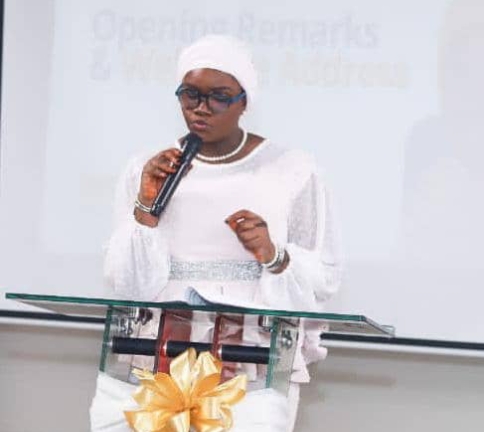Founder of The Brief Academy, Farida Yahya, has called for a conscious integration of profit and purpose in entrepreneurial ventures to foster a more sustainable and prosperous Nigeria, noting a prevalent frustration among young entrepreneurs regarding government policies and multiple taxation, which they believe hinder their growth.
She made the call at the inaugural Innovate for Impact Summit organised by the academy on the theme: “Innovating Responsibly: The Future of Impact-Driven Ventures in Nigeria,” with support from the Co-Development Hub, Northern Founders Community, Abuja Global Shapers, Open Mind Young Voices, Alumni Association of Legislative Mentorship Initiative, FEGOMOSA, and Dbegotin Foundation.
The Innovate for Impact Summit is a closeout event for the Impact Venture Series, which is a project that is funded by the Nigeria Youth Futures Fund, our first ever grant. And so we’re very excited about that.
Yahya explained that the summit serves as the culmination of The Brief Academy’s Impact Venture Series, which has focused on empowering entrepreneurs with tools and strategies for sustainable growth.
She emphasised the academy’s role in bridging this gap by facilitating dialogue between entrepreneurs and policymakers to foster a more conducive business environment.
“When I talk to entrepreneurs, their frustration is with a lot of policies that they feel is stopping them from being able to grow, including taxation and multiple taxation. What we realize is that when we bring them to the table with policymakers, they understand their thinking and how they can support them before making policies. We aim to prevent problems by having conversations and exchanging value and perspectives.
“Policymakers need to speak with entrepreneurs and those they are taxing, collecting their voices and perspectives. Taxation should not be a blanket approach but rather tailored to different income levels, with support sometimes preceding taxation. There needs to be an enabling environment where dialogue happens before policies are created. We should be part of creating policies like VAT increases, so when they come out, we will not argue but be happy to pay the tax because we were part of the conversation and setting the tone.
“Let’s not just wake up one morning and the news we’re hearing that, you know, VAT is 7.5%. Let’s be part of creating that 7.5% so that when it comes out, we will not argue. We would even be happy to pay the tax because we were part of the conversation and setting the tone,” she stressed.
“I think the most important message for us today is the importance of putting together purpose and profit side by side. You can make profit and still make impact in society. Nigeria is still a developing nation. We have a population boom. We have the youngest population in the world. Over 60% of Nigerians are under 35. So we feel it’s important for us to have this conversation right now,” she added.
Muhammad Bukagumara, Founder and Chief Executive of Code of Hope, said the Innovate Summit is an important activity that is part of an impact ventures project that is funded by the NYFF that seeks to bring together key stakeholders from the private sector as well as the non-profits to discuss about the importance of integrating CSR initiatives into supporting youth ecosystem and the startups.
“It is very, very important to note that the youth ecosystem is overstretched with lack of funding, lack of support, and the government on its own cannot be able to do it all, so which is why we are calling on private stakeholders and other important stakeholders within the community to be part of that particular initiative,” he said
Onyeche Elizabeth Ibti-Douglas, Director for the Nigeria Youth Future Fund at Leap Africa, emphasized that Nigerian youth are not just future leaders but present actors:
“Nigeria’s young people to understand that it’s not leaders of tomorrow. Their time is now. Even when you just look at the demographic, 70% of Nigerians are aged under 40. 60% of Nigerians are aged under 30. Our average age is slightly under 20. So five out of every 10 Nigerians on the street is a young teenager, someone who should be an undergraduate or just started working, that sort of thing. And if they make up the bulk of the population, then that means that every action or their inaction ultimately determines and is a major factor for how our society is and how we’re going to be. So they are not the leaders of tomorrow.”
“Another thing I really need our young people to understand is that leadership is not offered. It’s not given. It’s something that you choose to adopt and embody. It starts with taking personal responsibility for yourself. It starts with your own learning. It starts with choosing to become responsible for what goes on around you. You see things happening around you. You are not looking at other people and what other people should be doing. You are looking at yourself and asking yourself the question, what should I be doing? How can I contribute to this? How can I solve this problem? How can I make the world better? That’s how change happens. And that’s how leaders are made. That’s how we see leaders,” she urged.






